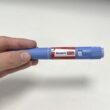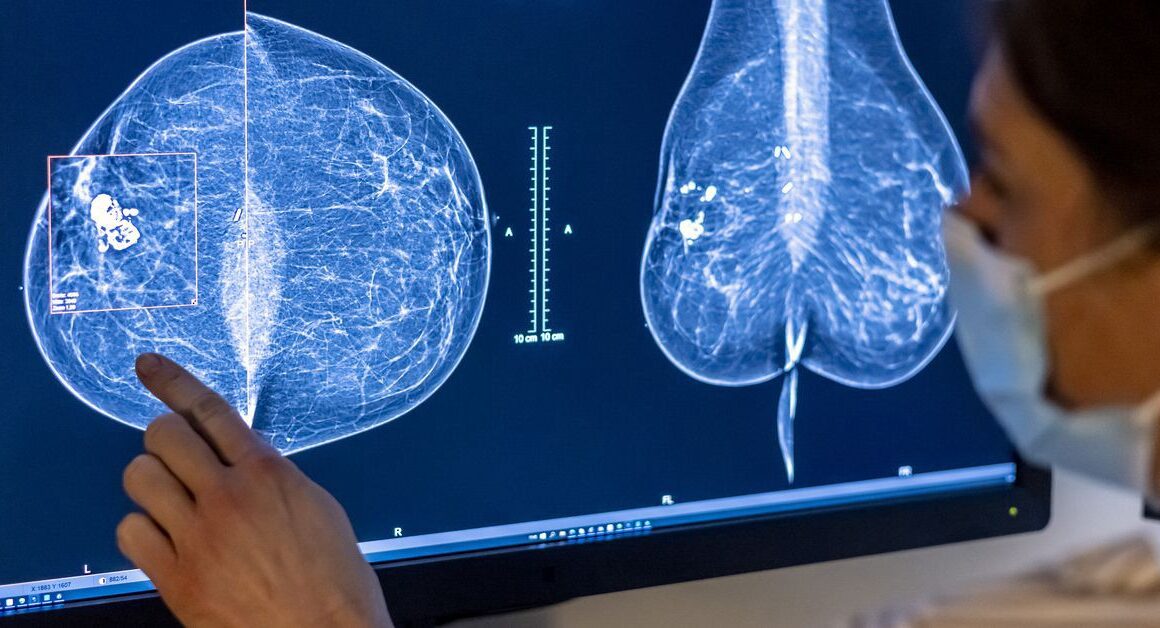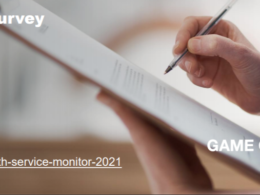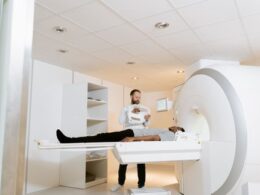health transformation institute (HTI)
the most comprehensive knowledge portal, for health transformation
Joaquim Cardoso MSc*
Founder, Chief Researcher and Editor
November 28, 2022
MSc* from London Business School — MIT Sloan Masters Program
The Verge
By JUSTINE CALMA
Nov 28, 2022
Google announced today that it has licensed its AI research model for breast cancer screening to medical technology company iCAD.
This is the first time Google is licensing the technology, with the hopes that it will eventually lead to more accurate breast cancer detection and risk assessment.
The two companies aim to eventually deploy the technology in real-world clinical settings — targeting a “2024 release,” Google communications manager Nicole Linton told The Verge in an email.
Commercial deployment, however, still depends on how successful continued research and testing are.
“We will move deliberately and test things as we go,” Linton said in the email.
“We will move deliberately and test things as we go.”
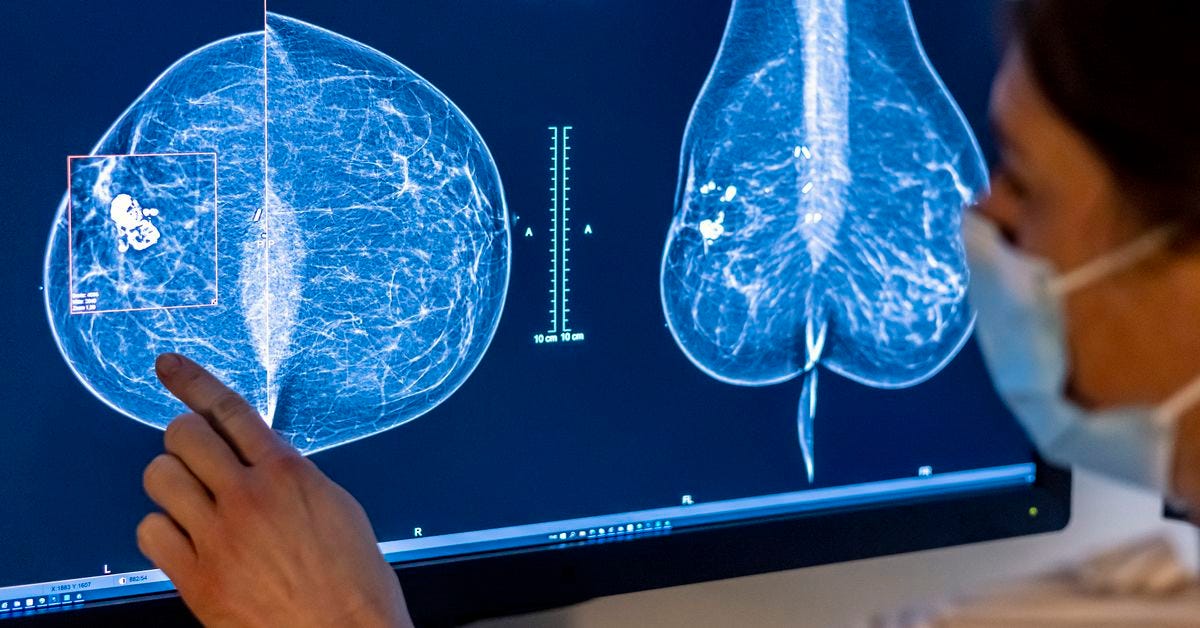
The partnership builds on Google’s prior work to improve breast cancer detection.
Back in 2020, Google researchers published a paper in the journal Nature that found that its AI system outperformed several radiologists in identifying signs of breast cancer.
The model reduced false negatives by up to 9.4 percent and reduced false positives by up to 5.7 percent among thousands of mammograms studied.
iCAD plans to incorporate Google’s mammography AI research model into iCAD’s existing tools.
The first is its “ProFound AI” tool that analyzes images from digital breast tomosynthesis (DBT), an advanced imaging technique sometimes called “3D mammography.”
The tool scans DBT images to look for malignant soft tissue densities and calcifications. iCAD also plans to use Google’s model with its risk evaluation tool, which the company says provides personalized breast cancer risk estimation tailored to each person.
The tool scans DBT images to look for malignant soft tissue densities and calcifications. iCAD also plans to use Google’s model with its risk evaluation tool, which the company says provides personalized breast cancer risk estimation tailored to each person.
The hope is that AI might become a tool to help radiologists and their patients.
Generally, medical experts are approaching AI with caution.
There were some instances in Google’s 2020research when radiologists spotted cancer that the model didn’t initially see.
Beyond that, there’s not exactly a gold standard for diagnosing cancer.
That might make it difficult to establish a good baseline when training an algorithm, The Verge’s James Vincent previously reported.
So rather than sticking to a binary of outcomes — “cancer” or “no cancer” — such AI tools might improve by offering more than two options to account for the “gray area of diagnosis,” Vincent writes.
Relying too heavily on AI without bringing doctors in to assess all the nuances of a patient’s health, especially when it comes to trying to detect early-stage cancer, could heighten the risk of overdiagnosis.
… there’s not exactly a gold standard for diagnosing cancer. That might make it difficult to establish a good baseline when training an algorithm
So rather than sticking to a binary of outcomes — “cancer” or “no cancer” — such AI tools might improve by offering more than two options to account for the “gray area of diagnosis,” …

Separately, Google says it is also working with the UK’s National Health Service (NHS) and Imperial College London to see if its AI technology can work as a “second independent reader” …
… in double reading mammograms to “allow radiologists to focus on high-priority cases while improving consistency and quality of screening.”
Separately, Google says it is also working with the UK’s National Health Service (NHS) and Imperial College London to see if its AI technology can work as a “second independent reader” …
… in double reading mammograms to “allow radiologists to focus on high-priority cases while improving consistency and quality of screening.”
Originally published at https://www.theverge.com on November 28, 2022.
Names mentioned
Google communications manager Nicole Linton
Greg Corrado, Ph.D., head of health AI at Google Health
Axel Gräwingholt, M.D., a radiologist at the Radiologie Am Theater in Paderborn, Germany
NOTE FROM THE EDITOR (Source: Fierce Healthcare)
Shares of iCAD jumped 25% after the medical technology company said it has struck a deal with Alphabet Inc.’s Google Health to integrate Google Health’s artificial intelligence technology into iCAD’s portfolio of breast-imaging solutions.
Under the definitive agreement, Google has licensed its AI technology for breast cancer and personalized risk assessment to iCAD. The medtech company will apply the licensed technology to further improve its 3D and 2D AI algorithms and will commercialize developed products.
Digital mammography, or X-ray imaging of the breast, is the most common method to screen for breast cancer, with over 42 million exams performed each year in the U.S. and U.K. combined, according to Google. But despite the wide usage of digital mammography, spotting and diagnosing breast cancer early remains a challenge.
A shortage of specialists around the world means screening systems are often overburdened, leading to long, anxiety-filled delays for people awaiting results. In screening programs today, there are challenges related to access, accuracy, patient experience and clinician workload, Corrado wrote.
The company also partnered with Northwestern Medicine to research how AI technology can help prioritize high-risk cases and shorten the time to diagnosis for screened individuals.
Although 3D mammography is growing in adoption around the world, in many countries, 2D mammography remains widely prevalent for breast cancer screening, according to Axel Gräwingholt, M.D., a radiologist at the Radiologie Am Theater in Paderborn, Germany. Many European countries require double-reading for mammography, yet the global shortage of mammography professionals makes this particularly challenging in many cases, Gräwingholt said.
Breast cancer has now overtaken lung cancer as the world’s most commonly diagnosed cancer. More than 55,000 people in the U.K. are diagnosed with breast cancer each year, and about 1 in 8 women in the U.S. will develop the disease in their lifetime.
